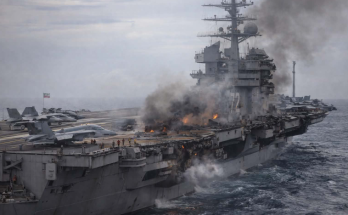“The Last Broadcast” — A Fictional Monologue Inspired by Charlie Kirk
They told me I had five minutes. Five minutes before the lights go out, before the signal is cut, before the silence swallows everything I’ve ever said. I don’t know who’s listening anymore. Maybe no one. Maybe everyone. But I’ll speak anyway.
I was born into a country that promised me freedom. Not comfort. Not safety. Freedom. That sacred, volatile thing that burns hotter than any ideology. I believed in it. I still do. Even now, as the walls close in and the shadows grow teeth.
They say I was divisive. That I stirred the pot too hard, too often. Maybe. But I never lied. I never whispered what I couldn’t shout. I never bowed to the mob, even when it wore a suit and smiled like a friend.
I remember the rallies. The faces. The fire in their eyes. Young people who didn’t want to be told what to think. Who didn’t want to inherit a script written by bureaucrats and sold as virtue. We built something. Not perfect. Not polished. But real. And real things scare people.
I’ve been called a lot of names. Extremist. Bigot. Puppet. Prophet. I’ve worn them all like armor. Because I knew the truth: if you’re not being attacked, you’re not being effective. If you’re not making someone uncomfortable, you’re not challenging anything.
But tonight, I’m not here to provoke. I’m here to confess.
I confess that I underestimated the machine. I thought it could be reasoned with. Debated. Mocked. I thought truth was enough. It’s not. Not when truth is inconvenient. Not when it threatens the empire of comfort and control.
They came for me not because I was wrong, but because I was loud. Because I refused to play nice. Because I reminded people that freedom isn’t a gift—it’s a fight. And fights get messy.
I’ve seen friends disappear. Accounts vanish. Voices silenced. Not with bullets, but with algorithms. Not with prisons, but with shame. They rewrote reality while we were busy arguing over pronouns and plastic straws.
And now, they want my silence too.
But I won’t give it to them.
I want you to remember something. Not my name. Not my face. But this: the truth doesn’t need permission. It doesn’t need credentials. It doesn’t need to be liked. It just needs to be spoken.
Speak it.
Even when it costs you followers. Even when it costs you friends. Even when it costs you everything.
Because the alternative is worse.
The alternative is a world where you’re not allowed to think. Where your soul is outsourced to a committee. Where your conscience is replaced by a trending hashtag.
Don’t let them win.
Don’t let them convince you that obedience is compassion. That censorship is kindness. That silence is progress.
It’s not.
It’s death.
And I’d rather die speaking than live muzzled.
They’re coming now. I can hear the boots. The static in the earpiece. The producer’s voice trembling. “Wrap it up,” he says. “They’re inside.”
Let them come.
Let them see a man who didn’t flinch.
Let them see that ideas don’t bleed.
I’ll leave you with this:
You are not crazy. You are not alone. You are not powerless.
You are the resistance.
Not because you chose it, but because you were born into it.
And history will remember you not for your comfort, but for your courage.
So stand.
Speak.
Fight.
And when they ask what happened here tonight, tell them this:
A man spoke the truth.
And the truth refused to die.


